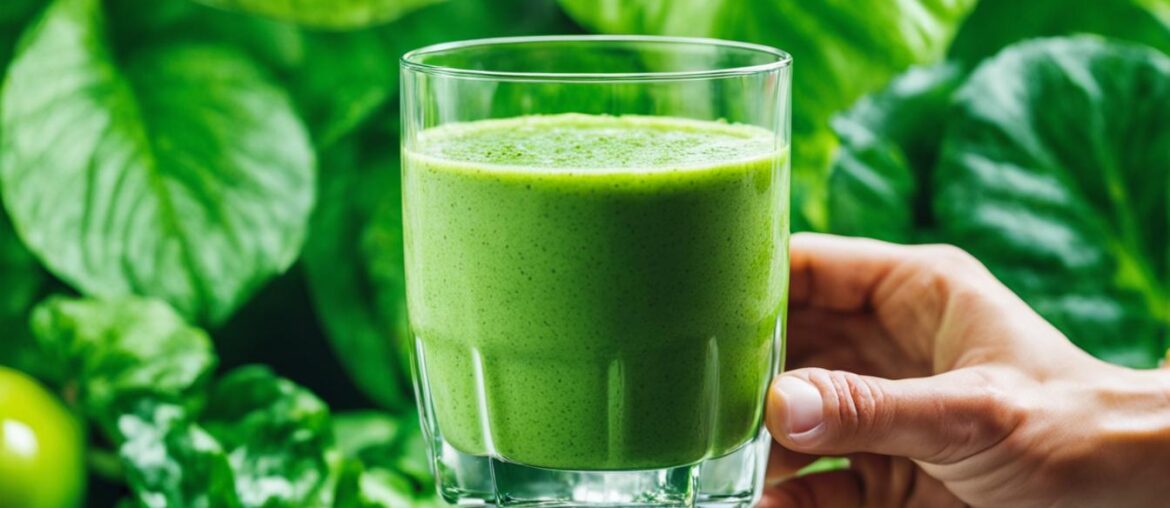Detox diets have gained popularity as a way to cleanse the body of toxins. These diets often involve fasting followed by a strict regimen of fruits, vegetables, and fluids, claiming to stimulate the organs, facilitate toxin elimination, and provide necessary nutrients. However, their actual effectiveness and the mechanism behind detox diets remain unclear due to limited and flawed research.
Detox diets are short-term dietary interventions designed to eliminate toxins from the body. They typically involve fasting, consuming specific foods and fluids, and sometimes incorporating supplements or colon cleanses. The goal of a detox is to rest the organs, stimulate the liver, and promote toxin elimination through waste, urine, and sweat. Despite being recommended for potential exposure to toxic chemicals and various health issues, the research on detox diets is lacking and studies that do exist have significant flaws.
Key Takeaways:
- Detox diets are popular for their perceived ability to remove toxins from the body.
- Research on detox diets is limited and flawed, raising doubts about their effectiveness.
- Detox diets involve fasting, specific food intake, and sometimes supplements or cleanses.
- The effectiveness of detox diets is a topic of debate among experts.
- Focusing on a healthy balanced diet, regular exercise, and overall lifestyle choices is a more sustainable approach to maintaining a healthy body.
What is a Detox?
Detox diets are short-term dietary interventions designed to eliminate toxins from the body. These diets often involve fasting, consuming specific foods and fluids, and sometimes include supplements or colon cleanses. The main objective of a detox is to rest the organs, stimulate the liver, and promote the elimination of toxins through waste, urine, and sweat.
Detox diets have gained popularity due to their potential benefits in helping with various health issues and potential exposure to toxic chemicals. However, it’s important to note that research on detox diets is lacking and the studies that do exist have significant flaws.
“Detox diets are a popular trend in the wellness industry, but the lack of scientific evidence supporting their effectiveness raises concerns.”
Despite the lack of scientific evidence, proponents of detox diets claim that they can help improve overall health, boost energy levels, and aid in weight loss. However, these claims are often based on anecdotal evidence rather than rigorous scientific research.
While the concept of detoxification is essential for maintaining a healthy body, it is important to approach detox diets with caution and skepticism. The body has natural detoxification processes in place, primarily through the liver, kidneys, intestines, and skin. These organs work together to eliminate waste products and toxins from the body.
Engaging in a healthy lifestyle that includes a balanced diet, regular exercise, and adequate sleep is generally considered the most effective way to support the body’s natural detoxification process. Consulting with a healthcare professional or registered dietitian is recommended before embarking on any detox diet or dietary intervention.
| Dietary interventions commonly included in detox diets | Benefits | Potential Drawbacks |
|---|---|---|
| Fasting | – Gives the digestive system a break – Promotes autophagy, a cellular repair process |
– May lead to nutrient deficiencies – Can cause headaches, weakness, and fatigue |
| Consuming specific foods and fluids | – Encourages the intake of nutrient-rich foods – Increases hydration |
– May restrict essential nutrients that are excluded from the diet – Limited food options can be challenging to sustain |
| Supplements | – May provide additional vitamins and minerals – Target specific detoxification pathways |
– Lack of regulation and potential for harmful interactions – Limited evidence on their effectiveness |
| Colon cleanses | – Claims to remove built-up waste and toxins from the colon | – Can cause gastrointestinal discomfort – May disrupt the balance of intestinal bacteria |
It’s worth mentioning that detox diets can vary greatly in terms of their intensity and duration. Some may last for only a few days, while others can extend up to several weeks. However, it is important to approach any extreme or restrictive diet with caution, as they can potentially lead to negative health consequences.
In conclusion, while detox diets claim to eliminate toxins and improve overall health, the scientific evidence supporting their effectiveness is lacking. The body has natural detoxification processes, and adopting a healthy and balanced lifestyle is generally considered the most effective way to support these processes. It is advisable to focus on long-term dietary changes, regular exercise, and adequate hydration rather than relying on short-term detox diets as a solution for eliminating toxins.
The Most Common Ways to Detox

Detox diets offer various methods to cleanse the body, with options ranging from fasting for 1-3 days to consuming specific foods or drinks. These diets often aim to eliminate toxins and promote overall health and well-being. Let’s explore some of the most common ways to detox:
Fasting
One popular detox method is fasting, which involves refraining from consuming any solid food for a certain period of time. This approach can range from intermittent fasting, where one restricts eating within specific hours of the day, to longer fasts lasting several days. Fasting allows the body’s natural detoxification processes to kick in, as it directs energy toward healing and repair.
Specific Foods and Drinks
Another common approach is to consume specific foods and drinks known for their detoxifying properties. These may include antioxidant-rich fruits and vegetables, such as berries, leafy greens, and citrus fruits. Additionally, herbal teas, lemon water, and detox smoothies are often incorporated into detox diets to support the body’s detoxification process.
Supplements
Detox diets may also involve the use of supplements or herbs that have purported detoxifying effects. These supplements can range from probiotics and digestive enzymes to herbal remedies like milk thistle or dandelion root extract. The idea is to provide additional support to the body’s natural detoxification pathways.
Other Methods
Some detox diets go beyond just fasting or consuming specific foods. They may also include additional methods, such as using laxatives, colon cleanses, or enemas. These techniques aim to further eliminate waste from the body and support the detoxification process. However, it’s essential to approach these methods with caution and consult a healthcare professional before attempting them.
Table:
| Detox Method | Description |
|---|---|
| Fasting | Refraining from consuming solid food for a specified period of time |
| Specific Foods and Drinks | Incorporating detoxifying foods and beverages into the diet |
| Supplements | Using specific supplements or herbs to support detoxification |
| Other Methods | Additional techniques like colon cleanses or enemas |
While detox diets offer various methods to cleanse the body, it’s important to note that the specific toxins targeted by these diets are rarely identified. Additionally, the mechanisms through which detox diets work remain unclear. Therefore, it is essential to consult with a healthcare professional before embarking on any detox program to ensure it is safe and suitable for your individual needs.
How Effective Are These Diets?
The effectiveness of detox diets is a topic of debate. Some people report feeling more focused and energized during and after detox diets. However, these improvements may be due to eliminating processed foods and unhealthy substances from the diet rather than the detox itself. While detox diets may lead to short-term weight loss, the weight loss is often attributed to fluid and carb stores rather than fat loss. Additionally, detox diets that involve severe calorie restriction may cause stress and negative side effects. More research is needed to determine the long-term effects and benefits of detox diets.
It is important to note that detox diets should not be seen as a magic solution for weight loss or overall metabolic health. While short-term fasting and calorie restriction might offer immediate results, they are not sustainable in the long run. The key to achieving and maintaining optimal metabolic health lies in adopting a balanced and varied diet, regular exercise, and a healthy lifestyle overall.
The Role of Weight Loss in Detox Diets
Detox diets are often associated with weight loss, but it’s essential to understand the nature of this weight loss. When following a detox diet, individuals may experience rapid weight loss due to the depletion of glycogen stores and water weight rather than actual fat loss. This can give the illusion of success in terms of weight loss, but it is not sustainable or indicative of true fat loss.
“Detox diets may result in short-term weight loss, primarily driven by fluid and glycogen depletion rather than fat loss.”
The initial weight loss experienced during a detox diet is not a reliable indicator of long-term success or metabolic health. To achieve sustainable and healthy weight loss, it is crucial to focus on long-term dietary and lifestyle changes that promote overall well-being.
The Potential Risks and Side Effects of Detox Diets
While detox diets may offer temporary benefits, there are potential risks and side effects to consider. Severe calorie restriction and prolonged fasting can lead to nutrient deficiencies, muscle loss, lowered metabolism, and reduced energy levels. Additionally, detox diets might cause psychological stress and a negative relationship with food, leading to disordered eating patterns.
“Detox diets that involve severe calorie restriction may have adverse effects on metabolic health and overall well-being.”
It is essential to approach detox diets with caution and consult with a healthcare professional or registered dietitian before embarking on any drastic dietary changes. They can provide personalized guidance and help create a balanced approach to improve metabolic health and achieve sustainable weight loss.
Further Research and Considerations
While there is anecdotal evidence claiming the effectiveness of detox diets, more scientific research is required to establish their benefits and limitations. Future studies should focus on long-term effects, including sustainable weight loss, metabolic health improvements, and potential risks. In the meantime, it is advisable to prioritize evidence-based dietary guidelines, regular physical activity, and a holistic approach to wellness.
By evaluating the complete picture of detox diets, individuals can make informed decisions about incorporating them into their lifestyle choices, always considering their long-term goals and overall well-being.
For a comprehensive understanding of the effectiveness of detox diets and their impact on weight loss and metabolic health, it is crucial to rely on reliable scientific research and consult with healthcare professionals. A balanced and individualized approach to nutrition and lifestyle is key to achieving sustainable results.
Conclusion
In conclusion, detox diets have gained popularity as a way to remove toxins from the body. However, there is limited evidence to support their effectiveness. The body is capable of naturally detoxifying itself through the liver, waste elimination, and other bodily processes.
While detox diets may have some potential benefits, such as avoiding certain toxins, losing excessive fat, and adopting healthy habits, they should not be relied upon as a sole solution for cleansing the body. Instead, focusing on a healthy balanced diet, regular exercise, and overall lifestyle choices is a more sustainable approach to maintaining a healthy body.




